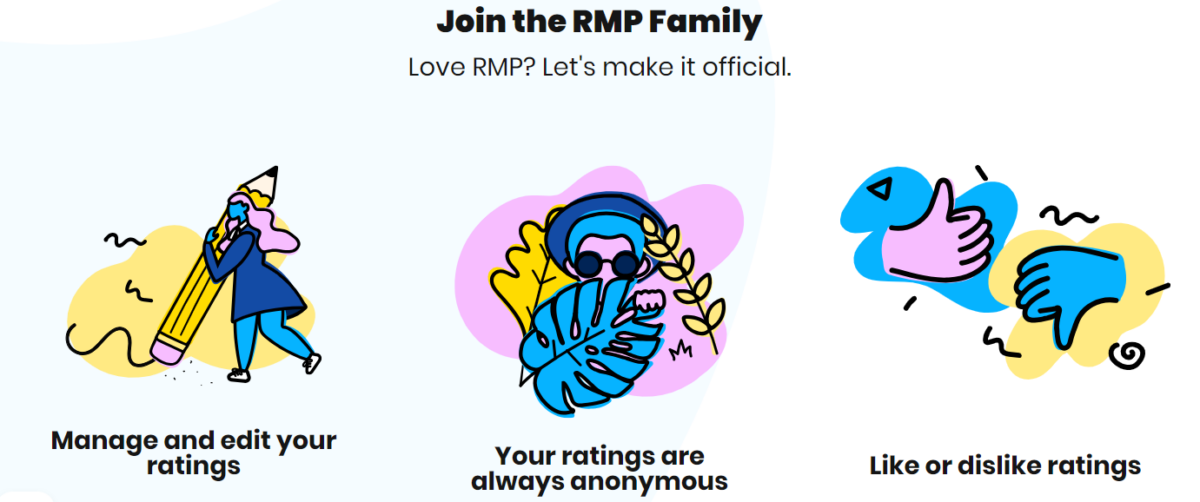Did you know that prior to the advent of the internet, students relied on word-of-mouth suggestions to decide which professors’ classes to sign up for?
They would seek out classmates who had already finished the course and enquire about their views of the professor’s education. Learning about a professor’s performance at that time was tricky, but it is now much more accessible.
There are many portals where students can publicize their sentiments about a specific professor and the lectures they conduct, giving sincere objections and ratings. Thanks to these platforms, you may more easily determine how highly other students rank a tutor. You will be better able to choose your professors and avoid those with low ratings.
Here is a quick summary of the best portals to rate your professors and teachers I’ll be discussing below.
What Purpose does a Rate your Professor Portal Serve?

In the context of higher education, a Rate Your Professor portal fulfills several roles. These are some of a portal’s primary purposes:
- Enhancing Teaching Quality: Professors may profit from productive criticism offered through the portal. It provides them with compelling perceptions of the students of their teaching and the areas where they may need to make adjustments.
- Course Selection: Students often use these portals to pick courses and create timetables. They might prioritize top-rated professors’ classes or steer clear of those who routinely receive low marks.
- Feedback for Progress: The feedback might be valid for colleges and organizations in addition to helping academics improve their education. They can utilize this report to discover their academic initiatives’ patterns, advantages, and disadvantages.
Moving further, here is a choice of online portals where you can rank and review your preferred teachers and professors.
Rate My Professors
Students can voice their opinions about teachers on Rate My Professors‘ popular portal. Type the professor’s name or the name of your school in the search field to start. When you’ve discovered the ideal professor, you can read previous evaluations or submit your own as a member or a guest. You can be honest without worrying because your identity is masked.

Features:
- Handle and update your ratings.
- Keep complete anonymity when posting reviews.
- Engage with comments using the “Like/Unlike” buttons.
- Leaving a review or comment is a quick and easy approach.
This platform offers valuable details about a professor’s general quality, whether or not students would retake their class, and the extent of difficulty of their courses when you visit their profile. You may find categories identifying their teaching methodology and evaluations and testimonials from former students.
RateMyProfessor.io
Students might profit tremendously from grasping what to predict because every teacher and classroom experience differs. RateMyProfessor.io gives insightful information on the professors you are thinking about.
Before forming a collaborative learning journey, it offers a complete perspective of professors’ competencies and qualifications by drawing millions of student evaluations from local and international settings.

Features:
- Users can voice their ideas and insights by remarking on any material on the platform and ranking it with stars.
- Students can exchange study materials and academic papers.
- It makes it easier for students to communicate on social media sites.
- The academic disciplines, institutions, and teachers benefit greatly from this translation.
Promoting two-way communication makes it attainable to minimize potential difficulties in the relationship between students and professors while ensuring their objectives are aligned.
Rate My Teachers
Rate My Teachers is one of the most popular portals for rating and reviewing teachers. It mainly concentrates on obtaining comments regarding both primary and secondary school teachers.
After joining the website, students can get a comprehensive list of teachers by searching for a specific school or teacher. After picking an educator, users can read reviews or even add their ratings.

Features:
- Direct focus on teachers in primary and secondary schools.
- Availability of schools and teachers in select countries such as the United States, UK, Canada, Ireland, Australia, and New Zealand.
- The chance to add a school to the database if it is not already listed.
- A rating system that wraps effectiveness, integrity, empathy, respect, determination, and more enables students to assess their teachers comprehensively.
This platform rating system is easy, with scores varying from one to five points. Aspects like Helpfulness, Clarity, Knowledge, and Easefulness are included in the evaluation categories, allowing students to share their thoughts on their interactions with the teacher while in school.
Rateyourprof.com
Rateyourprof.com is a website that collects data about college and university professors across the United States. This portal relies on students to contribute their reviews of instructors and allows them to peruse ratings submitted by their peers. The primary purpose is to equip students with the proficiency to make wise judgments regarding their academic experiences.

Features:
- It provides an easy-to-use platform that reduces the time needed to submit teacher evaluations.
- Users have the option to assess academics and tutors based on a variety of performance metrics.
- The portal operates a grading system that results in an overall grade for every teacher based on the ratings of each student.
- The portal lists the names of the best professors for each school when searching.
This platform service is free, and all user inputs remain anonymous. The site’s extensive search ability, which lets users filter their searches utilizing multiple parameters, is a unique feature. This feature greatly improves the user’s capacity to learn about the university and the individual professor.
Uloop
Uloop stands out as one of the best alternatives for students looking to assess and inspect their professors. This portal makes it easier for students to comment about their professors, lecturers, and teachers.
Reviews written by former students who studied under these professors provide insight into numerous facets of their instructional strategies, manners, and personality.

Features:
- Nearly all American educational institutions are included in Uloop’s coverage.
- Students can access various services via it, such as job postings on campus, the opportunity to share course notes, tutoring options, and the chance to grade teachers.
- Students evaluate their professors according to standards, including clarity in instruction, readability, and general helpfulness.
- The introduction of comments, in addition to evaluations, improves comprehension of a professor’s performance.
Uloop also acts as a resource that permits students to support their friends and avoid bad teachers. Insights from the forum go beyond merely professor evaluations. The page devoted to each lecturer includes a comments section where former students can voice their insights and experiences.
What are generally the rules for rating your professor portals?

The exact rules may vary between portals. Here are some standard rules and policies you can expect to find:
- Respectful Language: Students must usually use respectful and non-offensive language when writing reviews.
- No Personal Information: Reviewers are typically not allowed to share personal information about the professor or others in their reviews.
- No False Information: Posting false or deceptive info about a professor is usually against the rules.
- Relevant Content: Reviews should focus on the professor’s teaching style, communication, organization, and other aspects pertinent to the academic experience.
- One Review per Semester: Some portals may limit students to one review per professor per semester or academic term to prevent excessive or biased feedback.
- Takedown Requests: Professors can request the removal of reviews if they believe the content violates the portal’s rules.
- Academic Integrity: Students are usually prohibited from using the portals for cheating or academic dishonesty, such as requesting or offering to pay for good reviews or ratings.
- Verification: Some portals may have mechanisms to verify that reviewers are actual students of the professor being reviewed.
On What Parameters Can Students Rate Professors?

Using portals or websites created for professor ratings, students can often rate professors on various criteria. These factors can change depending on the platform, but often include:
- Overall Rating: To sum up their interaction with a professor, students often provide an overall rating or score, typically on a scale of 1 to 10. Students assess a professor’s power to successfully impart course material, clarity in teaching, and teaching style.
- Course Difficulty: By ranking the course’s difficulty, students can offer prospective students an indication of what to expect.
- Course Content: This criterion involves the course materials’ caliber, relevance, and degree to which they complement the course objectives.
What is the impact of these portals?
These platforms help improve student-teacher interaction or help improve the teaching standards. Some of the benefits offered are as follows:
- Transparency: Students can pick courses and professors with excellent knowledge by giving students the key to rating portals.
- Feedback for Enhancement: Professors can use Positive criticism from students to improve their course materials and lesson plans.
- Peer benchmarking: By comparing their scores to their colleagues, professors can see where they thrive and need to improve.
Whether rating portals raise teaching standards or student-teacher engagement is uncertain. They may promote discussion and introspection, which some academics find improves their teaching strategies. However, the establishment, the professors, and how the evaluations are applied will all impact student-teacher engagement and instructional standards.
Conclusion
Your academic progress may suffer if you enroll in a high school or university course with a less effective instructor. The good news is that there are ways to avoid or prepare for these professors.
You might consult websites that offer details on the lecturers at your school so that you can fully prepare for their classes. These portals provide the most recent evaluations and rankings of professors, assisting you in picking suitable courses.
Getting these insights allows you to schedule your coursework in advance. When employing these tools, it’s critical to practice cybersecurity caution and refrain from divulging large amounts of personal information.
Next, you may also explore how to learn For FREE from Harvard, Stanford, MIT, etc

